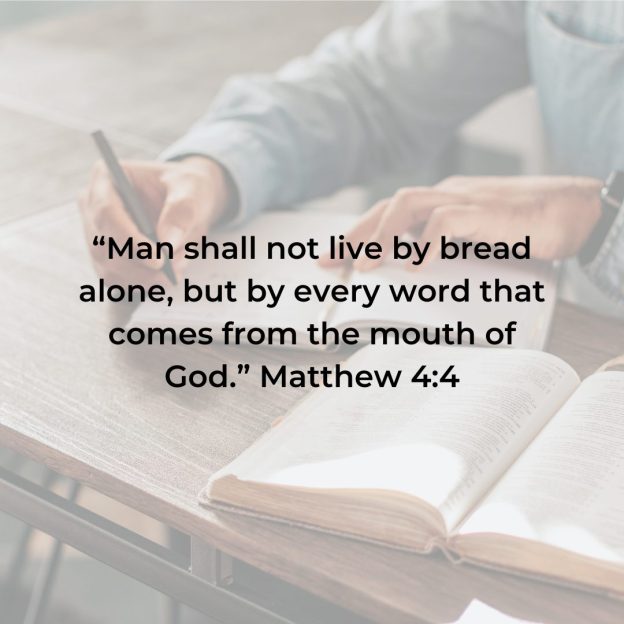Understanding the End Times: Revelation Bible Study

Billy Graham once said
The second coming of Christ will be so revolutionary that it will change every aspect of life on this planet. Christ will reign in righteousness. Disease will be arrested. Death will be modified. War will be abolished. Nature will be changed. Man will live as it was originally intended he should live.1
There is a coming day when God’s kingdom will be established on the earth.
A point in time where sin is destroyed and its effects reversed.
This point in time, commonly called the “end times,” is a source of hope for all who believe in and follow Jesus. Yet, while it does point to our future hope in Christ, it can often be a source of present confusion.
With much speculation surrounding days and times, many are left wondering when the end will come, as well as discerning how to live now in light of these coming days.
To go more in-depth on this topic, you can start with the Book of Revelation.
This book of the Bible, authored by John the Beloved, is a collection of visions he received regarding the new heaven and new earth that God would be establishing. With its symbolism and allegory, the Book of Revelation is a source of beauty, mystery, and wonder.
Author Nancy Guthrie states:
Through this record of his visions, we get to see the realities of heaven and earth from the perspective of heaven. Apart from this divine revelation, we’re limited to what we can see with our eyes and perceive with our senses. But with this divine revelation we can see into the worship of heaven. We can see the true nature of things on earth so that some of the things that seem valuable or beautiful are actually worthless and ugly. Likewise, what may seem like defeat is actually victory. What may seem insignificant from the vantage point of earth is actually of great worth.
The Book of Revelation provides a framework for the future, giving us heaven’s perspective regarding the days to come.
Yet, although the Book of Revelation provides us with valuable insight, at times, it needs to be more clear, leading to confusion, disagreements, and an overall lack of readership.
As a result, various questions consistently arise.
Here are a few of the most common questions regarding the end times and the Book of Revelation:
Who authored the Book of Revelation?
The Book of Revelation was authored by John the Beloved, one of Jesus’ closest disciples.
Prior to him writing the book, there was a time of tremendous persecution in the church. At this time, the ruling Roman emperor was Domitian. John was persecuted because he was fulfilling his mission, preaching the gospel and making disciples. As part of his persecution, he was exiled to the island of Patmos.
Banished to this island because of his faith and commitment to the Gospel, John received a revelation from God and began writing down the people, places, and events he saw.

How do you approach the Book of Revelation?
There are four primary ways to approach Revelation’s writings, visions, prophecies, and symbolism.
1. The Preterist
The preterist views the Book of Revelation as pointing to past events, specifically the temple’s destruction in Jerusalem in AD 70.
2. The Futurist
The futurist sees the Book of Revelation as pointing to events yet to happen.
3. The Historicist
The historicist interprets the Book of Revelation as spanning the entire church age, not exclusively dealing with the past or the future.
4. The Idealist
The idealist believes the Book of Revelation to be purely symbolic, pointing to the spiritual nature of our fight between good and evil.
What does the Book of Revelation mean for me today?
In the 7 Applications of Revelation, Dennis Johnson writes,
God gave us the book of Revelation not only to inform our minds but also to transform our lives. It gives us insight into the realities of our situation, our enemies, our Champion, and our true identity, and it calls us to patient endurance, hopeful purity, and courageous witness.
The Book of Revelation provides us with insight into God’s overarching story of redemption and reconciliation. It’s a book that challenges us to walk humbly with God. It’s a collection of visions that point us to the majesty and grandeur of our Creator. And it’s a sneak-peek at how the story of God consummates with all things being made new.
Author Tony Reinke writes:
Revelation provides us with high-def footage of the climactic conclusion of world history, it ties together and consummates all of God’s redemptive purposes in this world, and it delivers us to the doorstep of a glorious eternity. And a conscious awareness of this truth will begin to change our entire perspective of this world. If we listen carefully, this hearing will become heeding.
The Book of Revelation, when read with humility and openness, can be a source of hope and a catalyst for transformation.
Because from Genesis to Revelation, God is consistently and graciously stepping into the story to restore, reconcile, and renew all of creation.
Reinke goes on to say:
It appears that one of God’s main purposes in the book of Revelation is simply this–He wants to change us. He wants to change how we live, what we live for, how we treat our spouse and children and friends, how we order our goals, what we prioritize, the zeal with which we kill personal sin, the purity of the local church, our compassion towards the hurting, our counsel for fellow sinners, our love for the lost, our earnestness to obey, our diligence to pray, our disgust of our personal worldliness, our heartfelt earnest longing for the return of Christ. God wants us to be holy like His Son.
So, whether we approach this book as a collection of past events or as pointing towards future days, we can choose to participate in God’s redemptive story and open ourselves to be transformed in the process.
To Continue Your Study of the Book of Revelation
If you’d like to dive deeper into the Book of Revelation, you can sign up for our online course: The Apocalypse of Jesus Christ: The Significance of the Book of Revelation in the First Century and Today.
In this course, we take an in-depth look at:
- The key themes, background, authorship, dating, and synthesis of the Book of Revelation
- The eschatological views of the Bible: Heaven and the Underworld, the final Judgement and the Lake of Fire, Resurrection and the New Heavens and the New Earth
- How the Book of Revelation has influenced key historical events and individuals over the last 1,900 years and still wields global influence to this day
This course is specifically designed to cultivate a deeper love for God’s Word, as well as empowering you to walk boldly in the Spirit because of our ultimate victory in Christ Jesus.
If you’re ready to better understand the Book of Revelation and how it applies to your past, present, and future, click here to sign up today!
Search Keywords
Recent Posts
Top Women Leaders in the Bible
Author and theologian Lewis B. Smedes said From the outset, women are portrayed as essential...
The Power of Forgiveness in the Bible
Author and theologian Lewis B. Smedes said To forgive is to set a prisoner free and discover that...
How to Choose the Right Online Bible Study
Now more than ever, access to quality, online Bible study programs is right at our fingertips. The...
Online Bible Study Tools
Charles Spurgeon once said “Nobody ever outgrows Scripture; the book widens and deepens with our...

